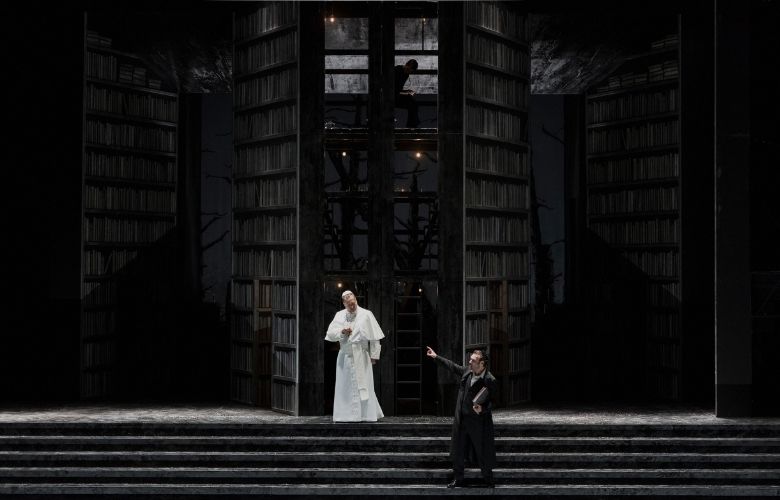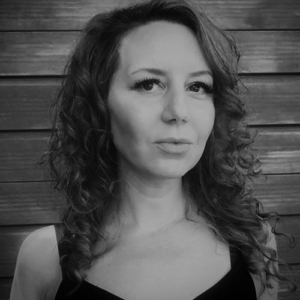
Opera Australia presents Halévy’s most successful opera, La Juive. The opera still delivers a relevant and important message of religious tolerance where audiences can’t help but empathise with the doomed Jewish woman and Christian man who love each other but can’t be together. Ahead of the exciting Australian premiere of La Juive this March, we speak to two of its stars, Diego Torre and Francisco Brito.
Diego Torre’s recent international engagements have included Dick Johnson (La fanciulla del West)in Mexico City, Canio for the Grand Théâtre de Genève and Calaf (Turandot) and Manrico (Il trovatore) for Teatro Regio di Torino; he sang Cavaradossi (Tosca) in China and Saarbrücken, Calaf in Oslo, Corrado (Il corsaro) in Parma and Cavaradossi, Canio and Turiddu (Cavalleria Rusticana) in Genoa.
A leading tenor at Opera Australia for many years, Diego’s most celebrated roles include Radames, Turiddu, Canio, Calaf, Cavaradossi, Pinkerton (Madama Butterfly), Edgardo (Lucia di Lammermoor), Rodolfo (La bohème), Gustavus (Un ballo in maschera), The Duke (Rigoletto), Gabriele Adorno (Simon Boccanegra), Rodolfo (Luisa Miller) and the title role in Don Carlo.
Currently I’m in rehearsals with the company and I’ve been enjoying them a lot. It’s always fun to work with OA. I’m very excited to debut this role.
Well, in spite of the controversial themes, the music is fantastic, and the paternal love Eléazar displays for his daughter touches me deeply.
I’m very happy to live in a country where empathy and tolerance is embraced.
The whole opera is amazing. But the part I enjoy most is when Eléazar and his daughter pray together at the beginning of the second act.
Yes, there are differences when living in one country to another. What I found in Australia, and what made me stay, is the beautiful values that people share, like generosity, empathy and tolerance. These values are what I want to instill in my kids, so my wife and I decided to stay.
I am very honoured and grateful that Opera Australia entrusts me with such beautiful and demanding roles. It is always a privilege to work with such a fantastic company.
Born in Argentina in 1985, Francisco Brito began his musical studies at the age of 11 with M° Guillermo Romero Ismael. After his arrival in Italy in 2004, he improved his Rossini repertoire with M° William Matteuzzi at Accademia d’Arte Lirica in Osimo, and then at Scuola dell’Opera Italiana (a partnership with Teatro Comunale in Bologna). He debuted in 2006, at Rossini Opera Festival in Pesaro with the Accademia Rossiniana, under the baton of M° Alberto Zedda, making Rossini’s repertoire the most important part of his musical growth.
He then sang several Rossini roles, among them: Lindoro L’italiana in Algeri at Teatro Comunale in Piacenza and Modena; Belfiore, Il viaggio a Reims at La Plata; Eacide in Zelmira and Bruschino Jr, Signor Bruschino at Rossini Opera Festival.
Firstly I’m really enjoying being in Australia. Sydney is a beautiful city! I’ve been loving the weather, the beaches, and the cultural diversity.
As for Leopold, I have sung this role once before. I was lucky enough to do it in Konstanz – right in the German city where the story takes place. So I’m looking forward to performing it with Opera Australia and in the Sydney Opera House.
From my point of view the opera shows that the human being is very fragile no matter your religion or social class. In this opera nobody wins, everybody loses because they focus on their own selfishness; Leopoldo, Eléazar, and Brogni all seek to fill their egos.
I think it touches on racist themes but it does not leave a racist message, or at least that is not the story that this staging wants to tell.
I love this opera because is one of those pieces that connects different styles. There are many things from La Juive in Il Trovatore: 20 years later Verdi took the hammer scene as a theatrical instrument.
I love my lines in this opera, especially my duet with Rachel and the terzetto with Eléazar and Rachel. But the most beautiful moment is Eléazar’s last romanza; it is so so touching and you can hear the genius of Halévy.
I come from Salta, which is in north-west Argentina and there is a huge cultural mix as it borders Bolivia, Paraguay and Chile. This also makes our music very rich. Although it is a city of almost one million habitants, you breathe the air of a small town.
Now, I have sung in several opera houses. My favourites are Zurich, Frankfurt, Dresden, Toronto, Napoli, Venezia, the Bolshoi, and I am more than sure that the Sydney Opera House will join the list. I’m really enjoying working with Opera Australia.
The biggest barrier for me in working around the world is enduring being away from those I love; my parents in Argentina and my daughter in Italy.
The future awaits me with many beautiful things: theatre in Frankfurt, the Erl Rossini Opera Festival in 2024 and I also hope to finish the release of my album ‘Serenatas de Argentina’.
I can’t wait to spend time with my girlfriend Luna, and of course enjoy my daughter, I’ll be taking her to Argentina to spend time with her grandparents soon.
Accessibility At The Smith Center Series: Part One
James “Fitz” FitzSimmons Interview: The Boys In The Band On Netflix


Michelle is a musician and composer from the UK. She has performed across the UK and Europe and is passionate about arts education and opportunities for women and girls.
Read Full Profile© 2021 TheatreArtLife. All rights reserved.

Thank you so much for reading, but you have now reached your free article limit for this month.
Our contributors are currently writing more articles for you to enjoy.
To keep reading, all you have to do is become a subscriber and then you can read unlimited articles anytime.
Your investment will help us continue to ignite connections across the globe in live entertainment and build this community for industry professionals.